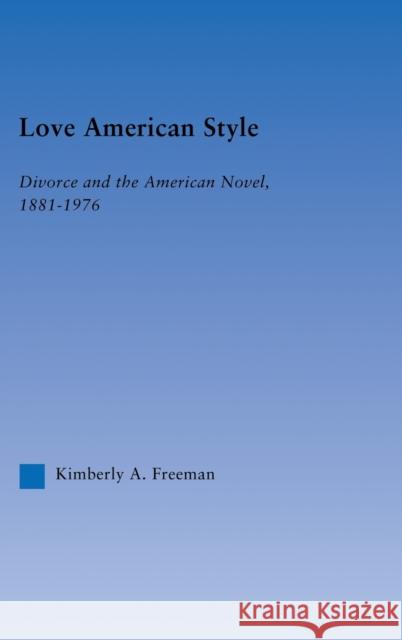Love American Style: Divorce and the American Novel, 1881-1976 » książka
Love American Style: Divorce and the American Novel, 1881-1976
ISBN-13: 9780415967839 / Angielski / Twarda / 2003 / 200 str.
Love American Style: Divorce and the American Novel, 1881-1976
ISBN-13: 9780415967839 / Angielski / Twarda / 2003 / 200 str.
(netto: 673,60 VAT: 5%)
Najniższa cena z 30 dni: 654,86
ok. 22 dni roboczych.
Darmowa dostawa!
A popular subject in sociology and cultural studies, divorce has until recently been overlooked by literary critics. Spanning nearly a century during which the divorce rate skyrocketed, this study traces the treatment of divorce in the American novel. It draws upon popular, sociological, political and architectural history to illustrate how divorce reflects conflicting ideologies and notions of American identity. Focusing primarily on work by William Dean Howells, Edith Wharton, Mary McCarthy and John Updike, Kimberly Freeman delineates a system of tropes particular to divorce in American novels, such as the association of divorce with the West and modernity, the dismantling of the home, and the disruption of the boundary between the public and the private. These tropes suggest a literary tradition of love, marriage and divorce that is central to 20th-century American fiction. Offering an explanation for both the treatment of divorce in the American novel as well as its predominance in American culture, this book should appeal to scholars of American literature and popular culture, or anyone interested in how divorce has become so American.











